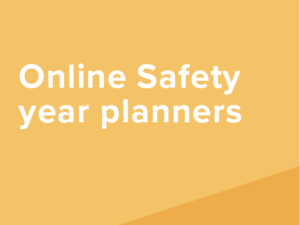The way schools teach and interact with students has changed significantly over the past few weeks. While this change to increased contact via digital devices and online platforms will bring exciting opportunities, it also brings with it uncertainty and a level of anxiety.
In response to this rapid change to how, when and where learning happens, Netsafe have developed guidelines to help schools ensure the safety of everyone when working online.
These guidelines do not replace existing school online safety policies or student use agreements. They are intended to provide schools, students and families/ whānau with advice around the safe and responsible use of school-owned devices at home.
1.Preparing the devices
Ensure all devices:
- are ‘clean’ and free from any unwanted content including:
- images which might have been inadvertently downloaded during school activities via pop-ups or screenshots
- additional software including games, apps etc which are not required for learning
- clear search histories
- have filtering systems/ security software installed (if possible)
- have pre-loaded, appropriate apps/ games/ tools
- are not linked to any personal teacher accounts
- have download or admin rights disabled
Think about:
- Who will be responsible for damage which occurs during remote learning?
- What support is in place if there are technological issues with the device? How will it be repaired?
2. Supporting parents
Ensure transparency around:
- parent/ whanau responsibilities including care, maintenance, and return of the device and what processes are in place should care not be maintained
- the presence of monitoring software (if any) for example Hapara and how this will be used
- time students are expected to be connected and online
- how the school/ teachers will connect with students including which platforms will be used and how safety has been considered
- parental controls – Are these enabled? Can they be downloaded?
- expectations around parental engagement/ support
- the steps the school is taking to protect student privacy within learning apps/ platforms
- safe and responsible usage expectations for students and consequences in place if those expectations are not met.
- what the device can and can’t be used for. This could include guidelines limiting the use of the device to learning only (not used for personal activities)
- share online incident management processes with parents including how parents can help, school’s role and how to connect with external organisations for example Netsafe.
- encourage families to explore and implement filtering/ protection at an ISP level
- student expectations. Resend student use agreements to make sure parents and students are aware of school expectations around appropriate use of devices.
3. Working with students
Ensure students understand:
- school expectations around the safe and responsible use of technology. This could include resending student use agreements or co-constructing new ones with students.
- consequences should expectations not be met/ use agreement broken
- what the device can be used for and what it is not to be used for. This could include ‘only for learning’, ‘not for personal use’, more specific guidance naming particular apps/ games.
- the device has been pre-loaded with the apps/ platforms the require and that they are not to download additional ones
- the device has filters in place (if possible) and these are not to be tampered with.
- school expectations around the length of time they are expected to be online and accessing learning. Provide guidance around the management of time online and tools to help them find a healthy balance between online and offline.
- what online harm looks like and what is in place should they experience it. This could include talking to their parents/ whanau, how they can connect with school and also some self-help tools including contacting Netsafe directly (if appropriate)



